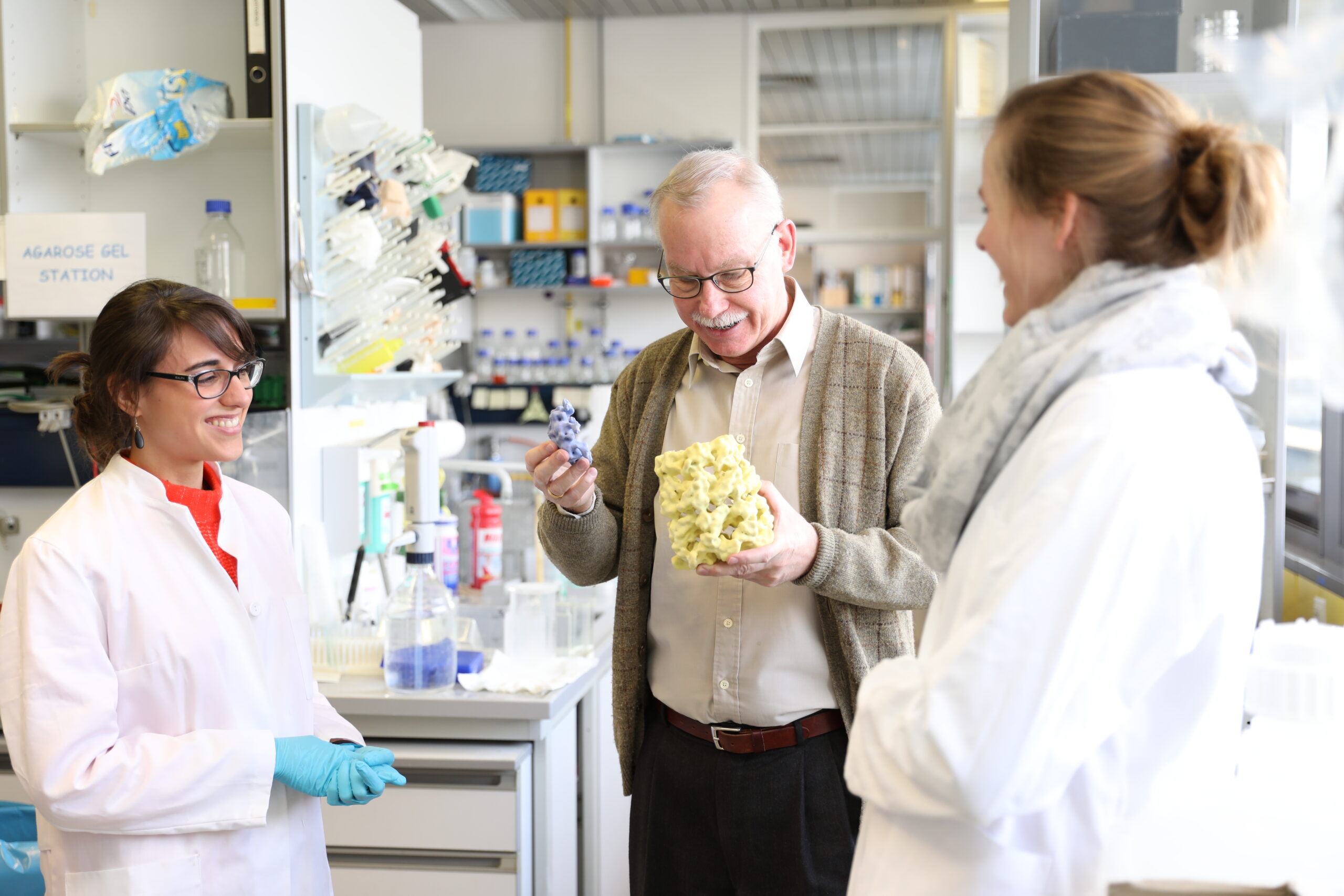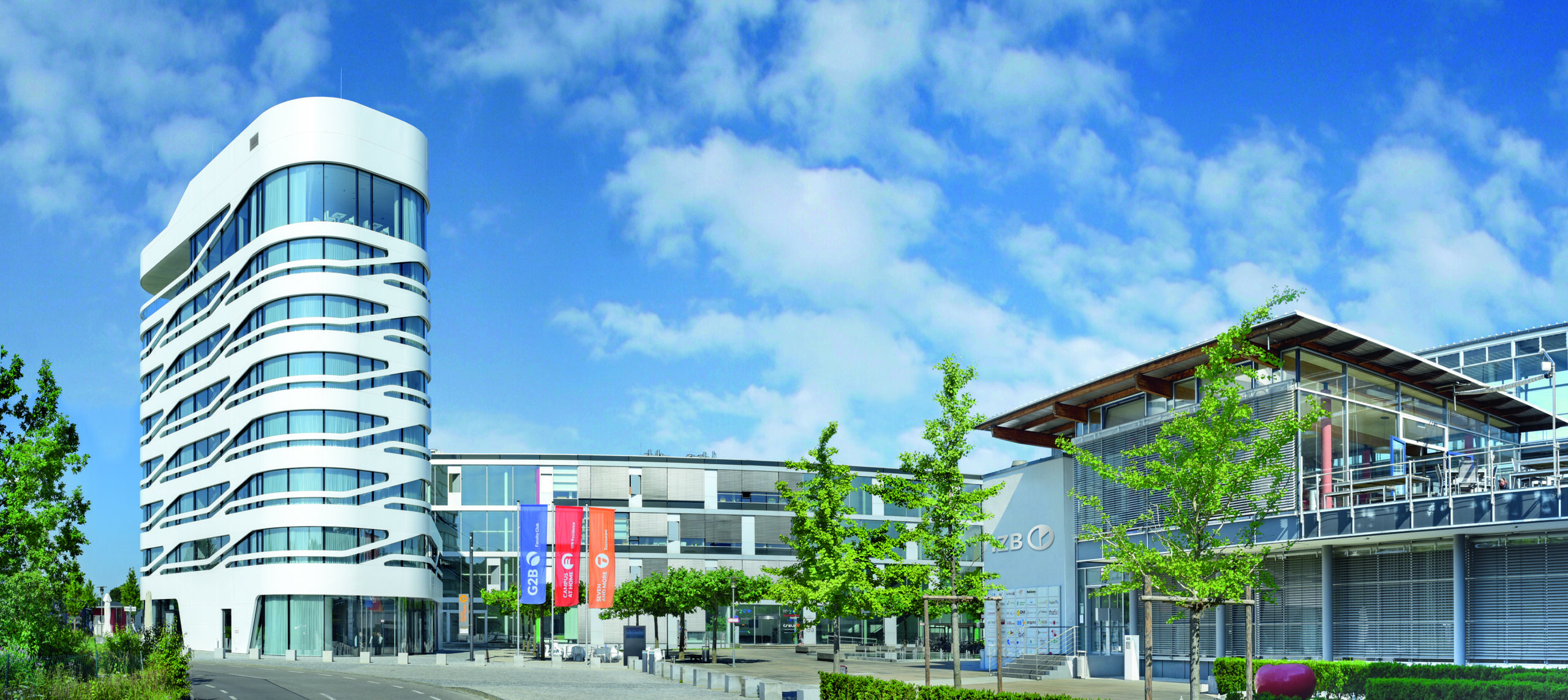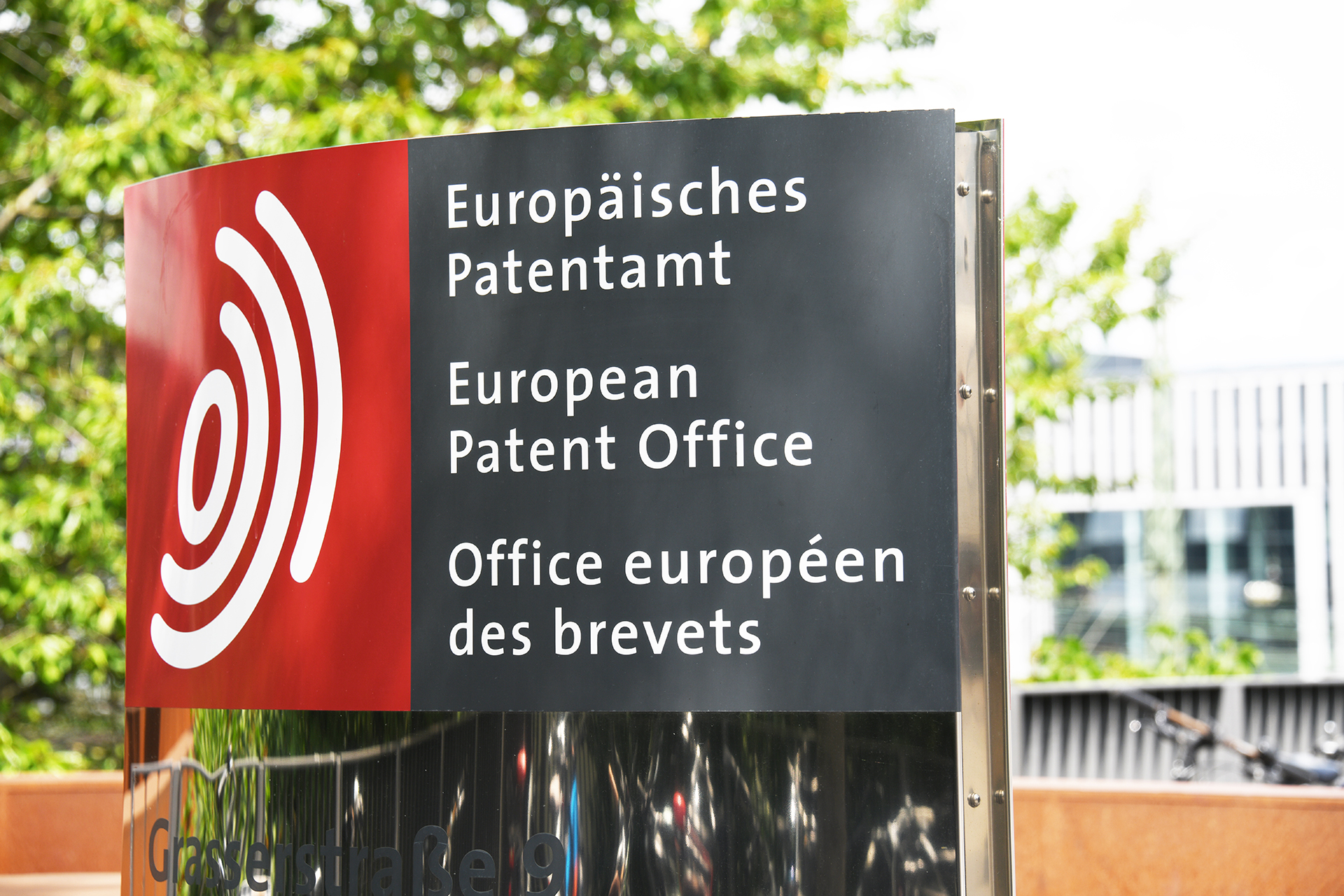12 THE BENEFITS OF OUR RESEARCH

THE FIGHT AGAINST CANCER
THE FIGHT AGAINST CANCER
Although our institute is dedicated to basic research, applications in medical diagnostics and therapy have always been part of it. Many of our scientists have contributed to cancer research. As early as the 1970s, they worked on the early detection of cancer. From 1981 to 1989, the Mildred Scheel Laboratory for Cancer Cell Research was affiliated with our institute.
Director Axel Ullrich earned prestigious merits for his research on two fundamentally new therapeutic approaches to improve cancer treatment. He introduced the first monoclonal antibody in breast cancer treatment as well as the principle of inhibiting vascular growth as a therapeutic concept against tumors and developed the corresponding drugs to the point of clinical application. Among others, Axel Ullrich received the German Cancer Society Award (1998) and the German Cancer Aid Award (2005). The research departments of other directors — for example, Erich A. Nigg, Stefan Jentsch, Reinhard Fässler and Matthias Mann—also contributed with their research to improve methods of cancer treatment.

ON THE TRAIL OF DIABETES, PARKINSON’S, RHEUMATIC DISEASES & MORE
ON THE TRAIL OF DIABETES, PARKINSON’S, RHEUMATIC DISEASES & MORE
Research conducted here at the Institute has also proved to be groundbreaking in the fight against other dangerous diseases or shows great potential for the future. For example, Klaus Kühn, one of the founding directors, investigated the causes of connective tissue diseases in the 1970s and was involved in the development of new drugs. The work of founding director Peter Hans Hofschneider led to the development of a vaccine against Hepatitis B. Other research added to the understanding and therapeutic treatment of rheumatic diseases and diabetes.
Today, F.-Ulrich Hartl’s research gives hope for the development of effective drugs against diseases such as Alzheimer’s, Parkinson’s and Huntington’s chorea. These diseases are caused by defects in protein folding that may lead to protein clumps, called aggregates, in the brain. F.-Ulrich Hartl and his colleagues are contributing to the current understanding about the causes of such clumps, thus helping to find new treatment approaches.

TECHNOLOGY TRANSFER THROUGH COOPERATION
TECHNOLOGY TRANSFER THROUGH COOPERATION
When it comes to transferring research results into practical applications, a wide range of collaborations have proven their worth. The proximity to the University Hospital Großhadern had once been an important reason for the selection of the Institute’s location — and indeed a fruitful cooperation between the two institutions has developed.
The Gene Center founded in Martinsried in 1984 also led to pioneering collaborations. The center is funded by the Federal Ministry of Research and the Free State of Bavaria. Their work focusses on the basics and the applications of genetic engineering. Before the center moved into its own building in Großhadern in 1994, it was housed in our institute.
The MPI of Biochemistry also made part of its premises available for the Biotechnology Innovation and Start-up Center (IZB), which opened in 1995 and is a technology park for numerous biotech companies. The project-related cooperation with these and other companies has proven its worth and enables the direct knowledge transfer into industry.
LICENSES AND SPIN-OFFS
In the 50 years of the Institute’s history, researchers at our institute have registered
a number of patents, the exploitation of which is mostly taken over by biotech companies. Basic research benefits from the licensing revenue and direct participation of the Max Planck Society (MPG). Starting a company themselves was difficult for the scientists of the 1970s to imagine. “None of us thought of that”, recalls founding director Robert Huber. But this attitude changed later on: Robert Huber himself pushed the founding of two biotech companies in 1997 and 2005 and remains associated with them as a consultant. And our long-serving director Axel Ullrich initiated six companies in the USA and Germany.
Matthias Mann’s field of research—protein analysis using mass spectrometry — is also a promising domain. Several former employees have founded companies in this field. The MPG supports scientists in the exploitation of research results in the public interest—whereby it is strictly ensured that no conflicts of interest arise and that the work for a company is only a secondary activity.

LICENSES AND SPIN-OFFS


